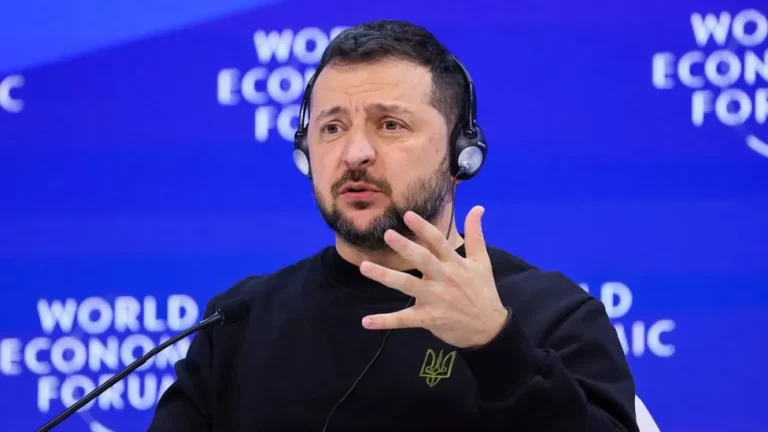President Zelensky has called for some of the Russian billions seized by world banks to be sent to rebuild Ukraine.
The G7 group is considering taking only the rise in value and interest due since the assets were frozen in 2020. But the Ukrainian president told the BBC all of the money should be used. “If the world has $300bn – why not use it?”, he said.
The BBC understands central bankers in Europe have concerns over undermining banks' safe haven status.
Despite some enthusiasm from the US and UK governments, Europe's central bankers have been far more sceptical about setting a difficult legal precedent that could undermine global financial stability. It could mean that other countries think twice about placing their safe haven assets in the West.
Belgium in particular happens to be home to a large portion of the frozen assets, due to its role in the clearing system for European reserves. It has already applied a charge to some funds raising €2bn for Ukraine. Proponents of the wider plan think tens of billions of dollars could be raised given some $360bn in frozen assets, and now high interest rates.
President Zelensky told the BBC on the margins of the World Economic Forum in Davos, Switzerland, that Western taxpayers should not foot the bill for the war in Ukraine.
He said: “We have $300bn [of] frozen Russian assets. They destroyed Ukraine…if we have $300bn of Russia assets we have to use them directly to rebuild what has been destroyed by Russian missiles… why does your society have to think how to help… If the world has $300bn, why not use it?”
President Zelensky met with Wall Street financiers at Davos including Jamie Dimon of JP Morgan and Steven Schwarzman of Blackstone.
Bill Winters, the boss of British bank Standard Chartered, said the global financial community's response to seizing the profits of Russian frozen assets would be “mixed” amid fears of “weaponizing” central banks and currencies.
“We may say it is worth it to do the right thing which most of us would agree at a human level it's the right thing. But I think central bankers have a right to be concerned,” he said.
“In the long run the US dollar plays such a central role that we do have to be careful about how we effectively weaponize it. It's already been quite weaponised through the application of sanctions. This would be a further extension of that,” Winters told the BBC.
The Ukrainian president told the World Economic Forum that some in the West were in denial that Putin was only interested in their territory, and that his country was defending Europe, and needed more help.
— CutC by bbc.com


